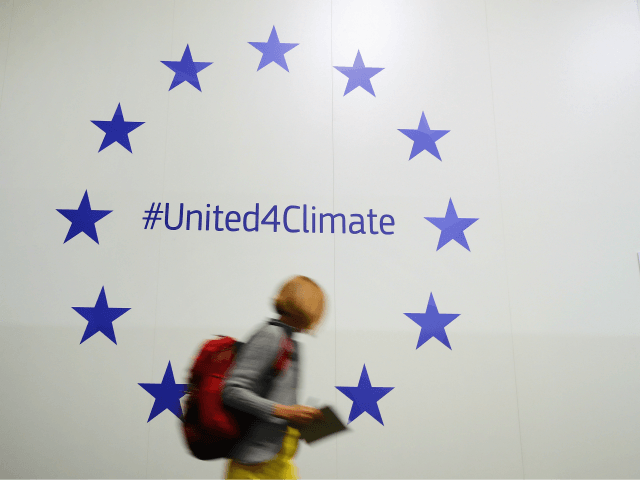The following countries are Europe’s biggest climate bedwetters: Netherlands, Sweden, Luxembourg, Denmark, and Finland.
And the most sensible climate realists: Poland, the Czech Republic, Slovakia, Hungary, and Bulgaria.
But just wait till you discover the identity of the biggest climate bedwetter of the lot…
We learn this from the alarmist publication Climate Change News, which is very worried about the future of European climate policy. Apparently, it has been thrown in doubt both by Brexit and by Germany’s increasing reluctance to hamstring its economy with its disastrous Energiewende renewable energy suicide programme.
Britain is leaving, Germany is “wobbling” and talks on EU emissions cuts are tipping in favour of the bloc’s more reticent countries, according to diplomatic sources following climate files in Brussels.
Europe’s staunchest advocates for tougher climate change measures are concerned about the one-two punch of Brexit and a German government weakened by September’s election.
When the UK leaves on 29 March next year, EU members pushing for strong policies, mostly from northern and western Europe, will lose a reliably ambitious ally. The UK is one of their heaviest hitters in the Council of the EU, where votes are weighted by population size. Germany is the biggest.
“Given we are towards the most ambitious end of the spectrum, it would change the centre of gravity, so you would expect less ambitious outcomes to be reached,” said Peter Betts, who left his position as director of international climate and energy at the UK’s energy department last week.
and
At the same time as Brexit, diplomats in that more ambitious camp worry another powerful partner is breaking ranks: Germany.
September’s federal election weakened chancellor Angela Merkel’s coalition between her centre-right bloc and the Social Democrats, amplifying her need for support from industries, including coal and cars.
All excellent news then for anyone who believes in jobs, affordable energy, economic growth, avian fauna, trees, prosperity — and other beneficiaries of fossil fuel economies.
The report makes clear who the friends and enemies of the above are:
The EU’s climate-ambitious members such as Netherlands, Sweden, Luxembourg, Denmark and Finland may now find it harder to fight more resistant members including Poland, the Czech Republic, Slovakia, Hungary and Bulgaria over efforts to boost the emissions reduction target for 2030, the goal for 2050, and other policies.
But the very worst of all the EU’s member states when it comes to pushing overzealous climate change policies turns out to be none of the above.
According to Peter Betts, former director of international climate and energy at the UK’s energy department, it is none other than Britain:
“The UK has been by far the most influential member state on climate policy up until the Brexit referendum. With the loss of that influence, the EU could start to go in the other, less ambitious, direction.”
This may come as grim news to those among the 17.4 million Brexit voters who believed that Britain would be finally freed from the shackles of the EU’s green energy policies. If Betts’s analysis is correct it means that the British establishment is so hopelessly addicted to green virtue-signalling that it is unlikely to jettison its expensive, pointless climate policies if and when Britain quits the EU.

COMMENTS
Please let us know if you're having issues with commenting.